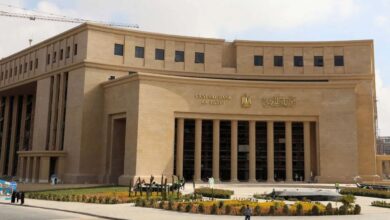Mohamed Saieed sat grumpily behind his counter of the Mourad Butcher in Giza. “I have plenty of time to talk,” he said. “We should be packed. I shouldn’t even be able to talk to you.”
It was less than a week before Eid al-Adha, the meat-intensive religious holiday that is normally a boom season for the nation’s butchers. But Saieed’s shop was literally empty of customers–evidence, he said, that Egypt’s chronic food supply issues had reached unprecedented levels.
“Nobody’s buying and nobody’s selling,” said Saieed. “Butchers' sales are down 80 percent across the country. The customers just aren’t coming; or those who bought five kilos of meat last year are now just buying one or two.”
And the reason why so many Egyptians will be experiencing their first Eid al-Adha without meat? Spiraling food prices that have affected all but the richest echelons of society and extended beyond the butcher’s counter to such basic food staples as tomatoes and cooking oil.
According to government statistics agency CAPMAS, vegetable prices soared 51 percent in September, while meat and poultry prices rose by 28.6 percent. Although vegetable prices have since returned to relatively normal levels–thanks partially to emergency government intervention—meat prices remain prohibitively high.
A kilo of fresh lamb meat, the preferred ingredient in the traditional Eid al-Adha dish fatta, now sells at LE65 per kilo–or at least it would if anybody was buying it. Cheaper meat is also available, including frozen beef shipped in from Sudan and Brazil, which now sells for between LE30 and LE35 per kilo. But fresh local lamb meat remains prohibitively expensive.
“Every year prices go up, and every year customers are fewer and fewer,” said Ahmed al-Awni, a butcher in Bab al-Luq's famed covered market. “A few years ago, there was so much work before the Eid that we would sleep in the shop.”
Al-Awni blames the Ministry of Agriculture for the dismal state of affairs.
“How many employees does the ministry have?" he asked. " What do they do? And what’s the result?"
Adel Beshai, an economics professor at Cairo's American University who specializes in agricultural issues, placed much of the blame on the government for what he described as its laissez faire attitude toward agricultural production.
“There's no policy,” Beshai said. “We don't do anything to mitigate the situation.”
Among the government missteps cited by Beshai was the rampant construction on agricultural land, which he says has accelerated in the last two years. He recommended that the government ban sales of veal–calves' meat–and require livestock farmers to let their cows grow to maturity before slaughter.
“That would bring us more optimal use,” Besahi said. “We're not rich in animal resources, like New Zealand or other countries.”
The abrupt price increases have even impacted the charitable giving that is a traditional hallmark of the holiday.
One customer at the Bab al-Luq market, who identified herself only as Hagga Fawzeya, said she buys 50 kilos of meat every Eid, most of which she distributes to the poor. This year, however, she only bought 15 kilos–partly because she can’t afford to buy at her usual levels, and partly because the needs of the families to whom she donates have changed.
“The people are asking for money instead of meat,” Hagga Fawzeya said. “Someone receives two kilos of meat, but doesn’t have sugar or oil or rice. He would rather take the money and buy half a kilo, and spend the rest on his household.”




